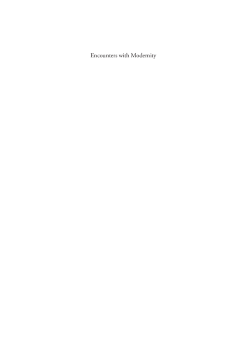
Additional Information
Book Details
Abstract
During the three decades from 1945 to 1975, the Catholic Church in West Germany employed a broad range of methods from empirical social research. Statistics, opinion polling, and organizational sociology, as well as psychoanalysis and other approaches from the “psy sciences,” were debated and introduced in pastoral care. In adopting these methods for their own work, bishops, parish clergy, and pastoral sociologists tried to open the church up to modernity in a rapidly changing society. In the process, they contributed to the reform agenda of the Second Vatican Council (1962-1965). Through its analysis of the intersections between organized religion and applied social sciences, this award-winning book offers fascinating insights into the trajectory of the Catholic Church in postwar Germany.
“This excellent English translation of Benjamin Ziemann’s Habilitationsschrift, first published in 2007, makes more accessible Ziemann’ss examination of West German Catholic reactions to secularization. Focused on the Church’s adoption of sociological methods of self-analysis in an era of ‘scientization of the social,’ Ziemann’s exploration of metaphor, theology, and the social sciences offers an unusually rich interdisciplinary approach from which all scholars can benefit. In a strongly argued study that stands out for its precision of terms, distillation of complex background, and fulsome documentation, Ziemann paints a nuanced picture of a responsive, if divided, Church confronting unprecedented secularity.” · German Studies Review
“Without a doubt, this work will remain (…) one of the pillars of the field.” · Central European History
“…one of the most important studies in contemporary history published in recent years.” · Neue Politische Literatur
“An impressive and original study… The book is an important contribution to the most recent history of Christian religion in Germany. Given the breadth of the field under scrutiny it is impressive to see how the author has delineated the object of his investigation and reconstructed its inner dynamics with precision.” · Archiv für Sozialgeschichte
“This is a fascinating study of the interrelatedness of processes of secularization and the increased adoption of social science methods and theories by the Catholic Church (…). Ziemann has written a case study of an important institution, the Catholic Church, and its attempts to modernize its institution and outlook within a rapidly modernizing society in the postwar Federal Republic. It will be read with great interest by anyone interested in such processes of modernization.” · German History
“…an impressively scholarly, wide-ranging and important new book.. a major contribution to the social history of the Federal Republic.” · English Historical Review
Benjamin Ziemann is Professor of Modern German History at the University of Sheffield. He is the author and editor of numerous books, including Contested Commemorations. Republican War Veterans and Weimar Political Culture (Cambridge, 2013), War Experiences in Rural Germany, 1914-1923 (Oxford, 2007), and, as co-editor, Reading Primary Sources (London, 2008). He has held Visiting Fellowships at the University of York, Humboldt University Berlin and at the Norwegian Nobel Institute in Oslo.
